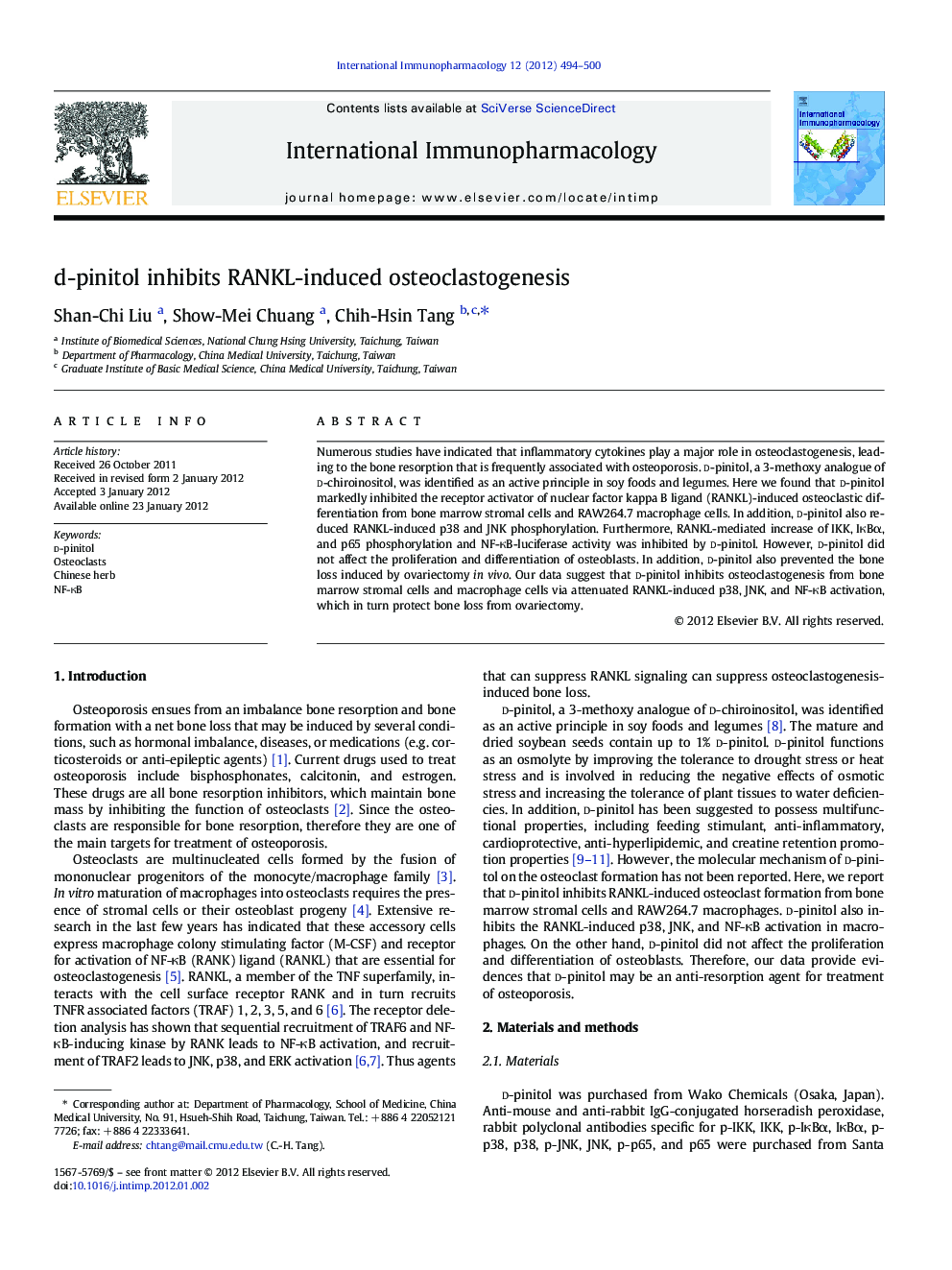| Article ID | Journal | Published Year | Pages | File Type |
|---|---|---|---|---|
| 2541029 | International Immunopharmacology | 2012 | 7 Pages |
Numerous studies have indicated that inflammatory cytokines play a major role in osteoclastogenesis, leading to the bone resorption that is frequently associated with osteoporosis. d-pinitol, a 3-methoxy analogue of d-chiroinositol, was identified as an active principle in soy foods and legumes. Here we found that d-pinitol markedly inhibited the receptor activator of nuclear factor kappa B ligand (RANKL)-induced osteoclastic differentiation from bone marrow stromal cells and RAW264.7 macrophage cells. In addition, d-pinitol also reduced RANKL-induced p38 and JNK phosphorylation. Furthermore, RANKL-mediated increase of IKK, IκBα, and p65 phosphorylation and NF-κB-luciferase activity was inhibited by d-pinitol. However, d-pinitol did not affect the proliferation and differentiation of osteoblasts. In addition, d-pinitol also prevented the bone loss induced by ovariectomy in vivo. Our data suggest that d-pinitol inhibits osteoclastogenesis from bone marrow stromal cells and macrophage cells via attenuated RANKL-induced p38, JNK, and NF-κB activation, which in turn protect bone loss from ovariectomy.
► d-pinitol inhibits RANKL-induced osteoclast formation. ► d-pinitol inhibits RANKL-induced p38, JNK and NF-κB activation. ► d-pinitol did not affect osteoblastic function. ► d-pinitol prevents the bone loss inducing by ovariectomy in vivo.
